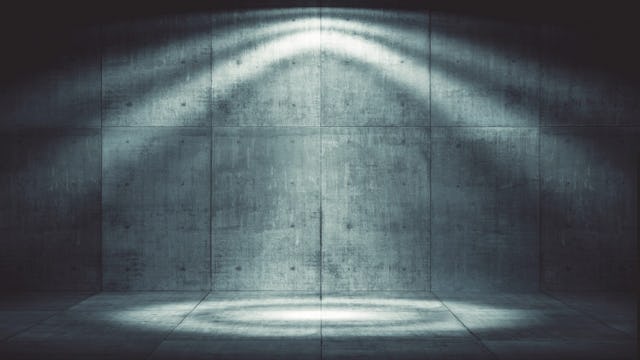Explaining What Depression Feels Like To The Non-Depressed Population

Nothing is good.
Not in the sense of “some things in my life are bad, but out there is goodness I can’t concentrate on right now,” but actually nothing in this world is good. There is not some hitherto unforeseen darkness to kittens and carnival rides; these things simply do not exist. For the depressed world, by its very nature, is a narrow one. Pain has a way of winnowing away the details. And when you’re depressed, kittens are just the details.
It’s hard for those who have never struggled with depression to understand what it’s like to be depressed. My husband, God bless his long-suffering soul, often seems to think that being depressed is like being sad, only for a long time, all the time. But depression isn’t plain old sadness. It’s so much more than that.
We all get sad; we even stay sad for long periods of time. We may sometimes say a person became depressed after their spouse died, but their symptoms go beyond an average grief. Depression is a hard landscape to imagine if you’ve never walked there.
It is blankness. Depression is, at its foremost, a nothingness. Imagine The NeverEnding Story. Remember The Nothing that devoured the land, turning it, piece by piece, into oblivion? This could be an avatar for depression. Nothing makes you happy. Not really happy, not happy in the way that normal people experience happiness and joy. Things may jolt you from your misery. You may manage a smile. But it’s very temporary. This is made worse by the fact that you know you should be happy, and yet you can’t.
There is nothing to look forward to. You do not anticipate future plans: vacations, births, weekends. The world hangs in the gray blankness of the present, disrupted only by the anticipation of the negative — depressed people always leap to the worst possible conclusion. You assume things will end badly, if you make assumptions about their endings at all. You have to clean all weekend. Your kids will need years of therapy. It will fucking rain.
This nothingness extends to those around you. You assume you are a walking black hole, and because of that, everyone hates you. Your kids will just grow up to hate you anyway. Your spouse shouldn’t have married you because he doesn’t deserve this. Your parents have rejected you. Your friends are avoiding you. Even your dog likes other people better than you. Because you, you are nothing. And if you are nothing, you deserve nothing.
The nothing eats into your bones. You are tired — so tired. You are exhausted in a way that sleep cannot fix, only obliterate for a few hours. This tiredness seeps into everything. You do not want to go out. You do not want to do housework. You do not want to get up to play with your kids, or read them a book, because sitting with nothing is better than something. You are that tired. You are weary in a way that the non-depressed cannot comprehend.
They think that if you just got up and did something — fixed your hair, went to the mall, ice-skated, walked in the sunshine — you would be fine. They do not understand that you carry this nothing with you. So even if you force yourself into the misery of these things, they will not solve anything. You will only trudge, feet dragging, counting the minutes until it’s over. Because nothing and something are polar opposites. They repel each other; they reject one another. You just want to go back to your bed or whatever coping mechanisms you’ve developed.
And this you must understand, and understand well: This is not a drill. This is not an exaggeration. This is not a some-of-the-time. We cannot snap out of depression. We cannot outthink it, outrun it, out-nature it, out-fun it. We can only hang on until the nothing, for reasons of meds or the inexplicable variations of brain chemistry, decides to let go. We can’t predict how or why this will happen. We didn’t choose this. We didn’t make it happen. It came, like a sudden storm, like a creeping fog. It came and wormed its way inside us, took us to its dark landscape.
We are not to blame. You cannot fight it for us. You can sit with us. You can say you’re sorry. And you can say that you love us anyway. Even when we tell you that you’re lying, say that. Say that a lot. And in the midst of the nothing, it may become something to hold onto. It could save us.